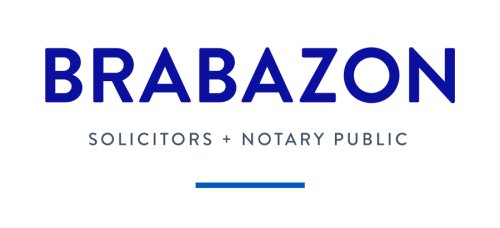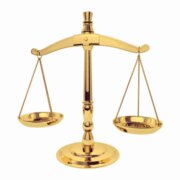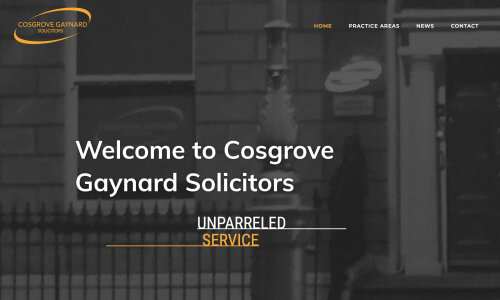Best Wrongful Termination Lawyers in Dublin
Share your needs with us, get contacted by law firms.
Free. Takes 2 min.
List of the best lawyers in Dublin, Ireland
About Wrongful Termination Law in Dublin, Ireland
Wrongful termination, also known as unfair dismissal in Ireland, occurs when an employee's contract of employment is terminated by the employer without fair reason or against the terms of the contract. In Dublin, Ireland, employees are protected under various employment laws and regulations that aim to ensure fair treatment and just processes when it comes to termination. Employers must follow the protocols set out in employment contracts, collective agreements, and statutory requirements to avoid claims of wrongful termination.
Why You May Need a Lawyer
There are numerous situations where you may require a lawyer if you believe you have been wrongfully terminated. These include, but are not limited to:
- Termination without notice or fair process.
- Dismissal for discriminatory reasons such as age, gender, race, or disability.
- Retaliation for whistleblowing or raising grievances about workplace issues.
- Redundancy where proper procedures were not followed.
- Breach of employment contract terms during the termination process.
- Disputes over severance packages or unpaid wages.
A lawyer specializing in employment law can evaluate your case, advise on the best course of action, and represent you in legal proceedings if necessary.
Local Laws Overview
Some key aspects of local laws relevant to wrongful termination in Dublin, Ireland include:
- Unfair Dismissals Act 1977-2015: This legislation provides the framework for what constitutes an unfair dismissal and outlines the rights and remedies available to employees who have been unfairly dismissed.
- Employment Equality Acts 1998-2015: These acts prohibit discrimination on various grounds, including age, gender, race, and disability, and protect employees from being unfairly dismissed due to discriminatory reasons.
- Redundancy Payments Acts 1967-2014: These acts set out the procedures and entitlements for employees who are dismissed due to redundancy, ensuring they receive fair compensation.
- Contract Law: The terms and conditions set forth in employment contracts must be honored during termination processes.
- Statutory Notice Periods: Employers are required to give or receive notice as per the Minimum Notice and Terms of Employment Acts 1973-2005.
Frequently Asked Questions
What constitutes wrongful termination?
Wrongful termination involves dismissing an employee without just cause, not following proper legal procedures, or violating the terms of an employment contract.
What should I do if I think my termination was unfair?
Seek immediate legal advice to evaluate your situation. A lawyer can help you understand your rights and guide you on the appropriate steps to take.
How long do I have to file a claim for wrongful termination?
You typically have six months from the date of termination to file a claim with the Workplace Relations Commission (WRC), though this period can be extended to 12 months in exceptional circumstances.
Can I be dismissed without any notice?
Employers must generally provide statutory notice as required by law unless the termination is due to gross misconduct, which can justify immediate dismissal without notice.
What compensation can I receive if I win a wrongful termination case?
Compensation may include reinstatement, re-engagement, or monetary compensation for loss of earnings and benefits.
Can I claim for wrongful termination if I was on a probationary period?
Employees on probation can still claim for wrongful termination, though the protections may differ slightly compared to permanent employees.
What evidence do I need to prove wrongful termination?
Documents such as your employment contract, termination letter, any emails or correspondence related to your dismissal, witness statements, and any relevant company policies or handbooks can be crucial evidence.
Is wrongful termination the same as constructive dismissal?
No, constructive dismissal occurs when an employee resigns due to the employer’s behavior making their continued employment untenable. However, both can give rise to similar claims for unfair dismissal.
Can I represent myself in a wrongful termination case?
While you can represent yourself, having a lawyer can greatly increase your chances of success due to their expertise and experience in employment law.
What role does the Workplace Relations Commission (WRC) play?
The WRC provides a platform for resolving disputes related to employment, including wrongful termination claims, through mediation, adjudication, and inspection services.
Additional Resources
Below are some resources, governmental bodies, and organizations that can be helpful:
- Workplace Relations Commission (WRC): Provides information and services related to employment rights and dispute resolution.
- Citizens Information: Offers comprehensive guides on various employment rights and entitlements.
- Labour Court: Handles appeals from the WRC adjudications and provides binding decisions.
- Irish Congress of Trade Unions (ICTU): Represents workers and offers support in employment disputes.
- Employment Rights Ireland: An online resource providing detailed information on employment law in Ireland.
Next Steps
If you believe you have been wrongfully terminated and need legal assistance, here are the next steps to take:
- Document Everything: Gather all relevant documents, including your employment contract, termination letter, and any related correspondence.
- Seek Legal Advice: Contact a lawyer who specializes in employment law to discuss your case and evaluate your options.
- File a Complaint: If advised, file a complaint with the Workplace Relations Commission within the statutory time limits.
- Prepare for Mediation/Adjudication: Work with your lawyer to prepare for any mediation or adjudication processes with the WRC.
- Follow Legal Guidance: Follow the legal advice and recommendations provided by your lawyer throughout the process.
Remember, seeking professional legal advice early can significantly impact the outcome of your case and help ensure your rights are protected.
Lawzana helps you find the best lawyers and law firms in Dublin through a curated and pre-screened list of qualified legal professionals. Our platform offers rankings and detailed profiles of attorneys and law firms, allowing you to compare based on practice areas, including Wrongful Termination, experience, and client feedback.
Each profile includes a description of the firm's areas of practice, client reviews, team members and partners, year of establishment, spoken languages, office locations, contact information, social media presence, and any published articles or resources. Most firms on our platform speak English and are experienced in both local and international legal matters.
Get a quote from top-rated law firms in Dublin, Ireland — quickly, securely, and without unnecessary hassle.
Disclaimer:
The information provided on this page is for general informational purposes only and does not constitute legal advice. While we strive to ensure the accuracy and relevance of the content, legal information may change over time, and interpretations of the law can vary. You should always consult with a qualified legal professional for advice specific to your situation.
We disclaim all liability for actions taken or not taken based on the content of this page. If you believe any information is incorrect or outdated, please contact us, and we will review and update it where appropriate.















